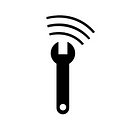Citizen Engagement in the ‘Smart’ City
Tom Zick (she/her) is a 2020 Summer Fellow with the Mayor’s Office of New Urban Mechanics focusing on digital transparency in the public realm.
The recent buzz about smart cities and big data can make it seem like urban data collection is a new thing. It’s not.
In 1854, cholera broke out in London’s Soho district. John Snow (likely no relation to the Game of Thrones character) set out to k̵i̵l̵l̵ ̵t̵h̵e̵ ̵n̵i̵g̵h̵t̵ ̵k̵i̵n̵g̵ identify the source of the infection. Going off of his theory that ‘bad air’ was not a mechanism for the spread of the disease, he set out to investigate. His plan? Map out the exact locations and times of cholera deaths to create what would now be called a geospatial information system.

To collect his data, he needed community trust. So he partnered with a beloved local reverend, and went door to door to interview residents. By combining their stories into a map of the outbreak, he was able to trace it back to a specific water pump. His map of disease spread was so convincing, that local authorities disabled the pump in question. It later turned out that the water source had been contaminated by sewage, causing the outbreak.
Fast forward to 2015. Legionnaires disease, a form of pneumonia spread by bacteria found in standing water, breaks out in New York City. Though the city had a culture of urban data collection, their approach to tracing the outbreak ended up being remarkably similar to John Snow’s. They had relevant data collected, but found they lacked the structure to account for it or share it across departments. Stopping the outbreak required citizen engagement in conjunction with improved data management.
I’m a data scientist and academic by training. As I finish up week two as a MONUM summer fellow, I find myself thinking more on what we are trying to achieve with open data.
There is a lot of value in bringing more Bostonians in on analyzing the data outputted by the city. Yet, a typical Bostonian doesn’t stay up all night anticipating what the next dataset on Boston’s open data portal will be. They do care whether the intersection next to their house is dangerous, or whether they’ll have space to take a socially distanced walk.
Establishing residents as active stakeholders was crucial in managing the two outbreaks I brought up in this post. It is crucial to our continued management of Covid-19 as well. As I look to the next six weeks of my fellowship, I’m excited to dig into the thoughtful and delightful ways that the City of Boston is already facilitating these connections and how to strengthen them.
Tom Zick just earned her PhD in Astrophysics from UC Berkeley, where she looked for patterns and meaning in huge astronomical datasets. Always curious about the ‘down-to-earth’ applications of the algorithms she developed to understand the cosmos, Tom organized a University wide network through which scientists and engineers could engage with the social implications of the technology they developed. She is also passionate about increasing public engagement with science and technology. Towards this end, Tom has explored approaches of varying sophistication, ranging from virtual reality tours of the universe, to roasting marshmallows with a mirror. Outside of graduate school, Tom has consulted for Silicon Valley Clean Energy on sustainable approaches towards community resilience and the Berkeley Center for Law and Technology on open data in government.
About the Fellowship:
The New Urban Mechanics Summer Fellowship is designed for entrepreneurial students and professionals interested in working in public service. During this highly selective eight-week program, summer fellows work as a team and on their own projects, generating and implementing creative and thoughtful new prototypes to benefit the City of Boston.
